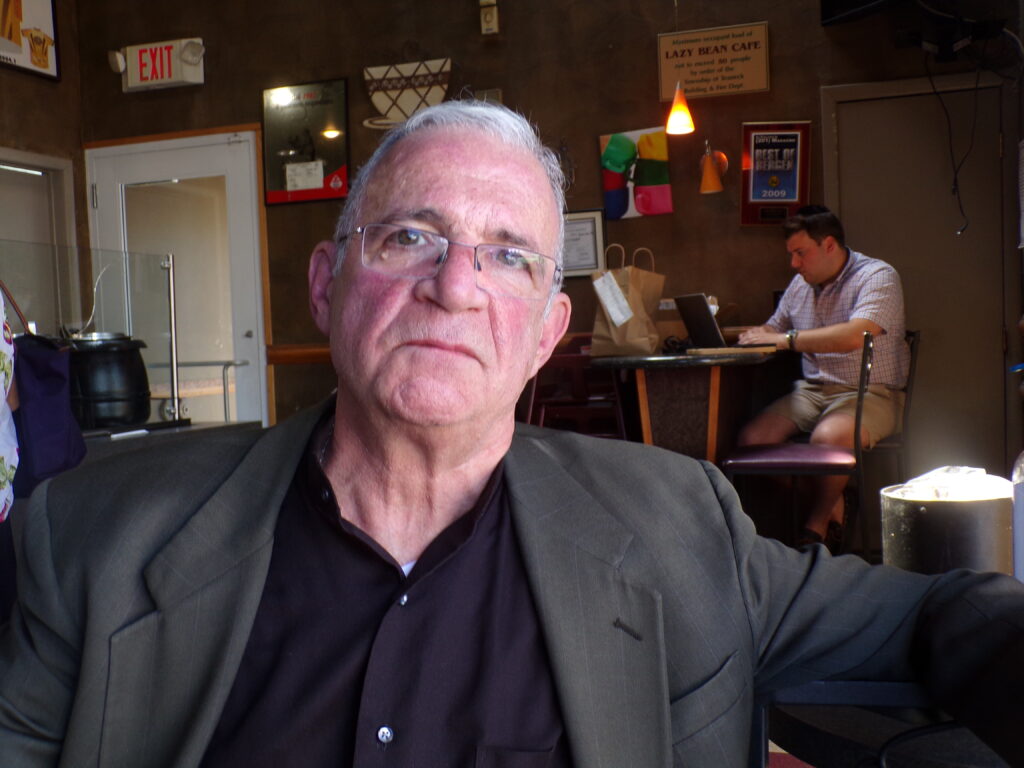The One Budget Bill that Made it All Worth it for Assemblyman Schaer

TEANECK - "Where's my coffee? I want my coffee!" a man - at the verge of a nervous breakdown - screams in the local bagel shop.
The COVID-ravaged city feels almost back to normal.
"Are you the manager?"
"No, just a satisfied customer." I reflexively tilt back my own half filled coffee cup for effect -
"Ah - a wise guy?"
-and push through the door onto the sidewalk.
It feels like New Jersey all over again - for real.
"A weight has been lifted, but we still have more to go," Assemblyman Gary Schaer (D-36) tells InsiderNJ in this diverse, fascinating Bergen County town hit hard early by the virus, where people cram the cafes.
He's upbeat, sitting in a local eatery off the street.
The Passaic City product - a veteran of numerous local and district wars and a longtime member of the Assembly Budget Committee - feels especially gratified, a public servant who spent over 20 years in local office and a decade and a half in the legislature, to get to this point, this moment - this bill.
It makes worth it every bill he hated and had to shoulder because of the demand of the processes of Trenton.
This one matters.
This one is why he became a lawmaker, he says.
He's referring to (A-5343), the lead poisoning bill he sponsors with Assemblywoman Angela McKnight (D-31), which is part of this season's budget.
"We're eliminating the problem - we're also establishing jobs," said Schaer, referring to his $2.6 billion bill, which consists of two halves:
- $1.3 billion in federal funding, which targets infrastructure repair and empower the state to dig up pipes and replace those contaminated by lead;
- $1.3 billion for utility companies, enabling them to apply to the Board of Public Utilities to ask for increases to bond the money.
"The program has a ten year life, and will create short and long term jobs to invigorate the economy, in addition to correcting our infrastructure problem," said the assemblyman. "It [the lead problem] is widespread. Clearly the technology that said at one point let's stop using lead in pipes - prior to that lead was used, and so the older areas are the most effected ones, and we will immediately look to our urban areas, our cities, where it most certainly affects people of color. But other areas are impacted as well. It affects all of us, in some areas more than others."
Schaer lingers on this one.
He's been around long enough to have felt the sting of ending up on the wrong side of a leadership fight.
He feels like he clawed back to get here.
"For me this is the most important bill I've ever written, the most important bill I've ever been a part of, the most expensive bill I've ever been a part of," he says. "This is social justice. It's kind of amazing in its own way to be involved in something like this. We as a government can save lives. To know that you've saved one life, just one - that's amazing."
He says he became passionate about the issue pre-Flint and pre-Newark.
It makes those often dismal Trenton days of insider back-rubbing bearable in retrospect.
"Number one, I believe compromise is a good thing," says Schaer. "It makes us work. It makes us think. It makes us find better ways. It demands discussion. Politics is never pure. It never was, it never will be. Compromise makes politics better. I'm heartened by this process. I think the bill we have today is better than the one we had last week, and it will be better. This is the bill that will save lives. How many people can say, 'I voted on a bill that says that little boy or that little girl won't have lead in their drinking water?' When you think about the legislature does - it's awesome. Compromise eliminates purity."
But it might finally make your drinking water cleaner.
The day, after all, doesn't feel normal, really - not for old, contaminated and creaky infrastructure riddled New Jersey.
It might - for once - just be a little better than normal.





